
On Hollywood’s biggest night, Backstage Access Magazine takes you behind the scenes during the 90th Academy Awards ceremony Sunday night to show a powerful call for inclusion and diversity in Hollywood. Winners included legends who had never before won, among them James Ivory (“Call Me by Your Name”) and Roger A. Deakins (“Blade Runner 2049”), and first-time nominees like Jordan Peele, who landed best original screenplay for “Get Out,” and Allison Janney, a television stalwart who won over the film academy with her supporting work in the darkly comedic Tonya Harding biopic “I, Tonya.” “I’ve been at this a long time,” said Mr. Deakins, a 14-time nominee. “Thank you. Thank you very much.” He started his career in the 1970s and was first nominated in 1995, for “The Shawshank Redemption.” Jordan Peele, who wrote and directed “Get Out,” received a raucous standing ovation for winning best original screenplay, signaling the Hollywood establishment’s respect for his movie and also his arrival as a certified member of that elite group. He thanked his mother, who, he said, “Taught me to love even in the face of hate.”

Kobe Bryant, former Los Angeles Laker player took home an Oscar at the 90th Academy Awards for Best Animated Short Film, alongside animator Glen Keane, who served as director. Bryant won for the film Dear Basketball, which was based on the letter he wrote for The Player’s Tribune in 2015 announcing his retirement from the NBA. “As basketball players, we’re really supposed to shut up and dribble,” said Bryant, seemingly referring to Laura Ingraham’s comments she made toward LeBron James and Kevin Durant last month. “I’m glad we do a little bit more than that.” The five-time NBA champion thanked his wife, Vanessa Bryant, and their three daughters said in an apparent reference to the Fox News host Laura Ingraham’s recent criticism of LeBron James for speaking out against President Trump. Mr. Bryant went on to thank his wife and daughters.
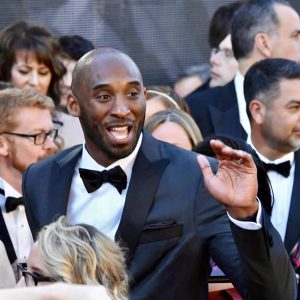
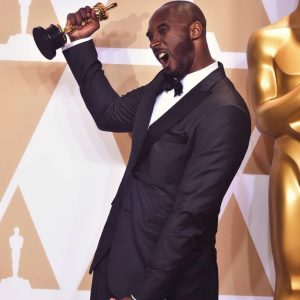
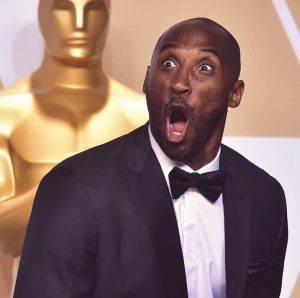
Disney continued its Oscars dominance, as Pixar’s “Coco” was named best-animated feature, Disney’s sixth straight victory in the category. “Representation matters!” shouted its co-director, Lee Unkrich, a reference to the characters and storyline of the film, which is centered on Mexico’s Day of the Dead celebration. Guillermo del Toro’s outcast parable, “The Shape of Water,” was honored as best picture, and Mr. del Toro won the best director Oscar. Jordan Peele collected the best original screenplay award for “Get Out,” a movie centered on racism in the liberal white suburbs. Mr. del Toro’s best director honor was widely expected — he took the top prize at several preceding awards shows — and he was an omnipresent darling of the awards circuit, at one point bringing a case of tequila to an awards function. The win meant that Mr. del Toro had finally won the acceptance of Hollywood, after being looked down on as a horror director for much of his career. “I am an immigrant,” an emotional Mr. del Toro started his acceptance speech by saying, continuing to note that art has the power to “erase the lines in the sand” between people of different ethnicities. “We should continue doing that when the world tells us to make them deeper.”
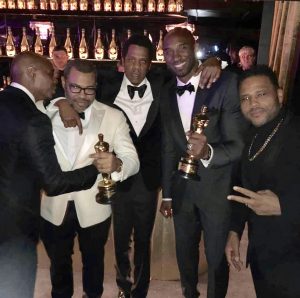
Frances McDormand, winning best actress for her portrayal of a mother seeking justice for her murdered daughter in “Three Billboards Outside Ebbing, Missouri,” made a dramatic stand for gender equality in Hollywood. She thanked “every single person in this building” and her sister before asking the female nominees in the room to stand. “Look around,” she said. “We all have stories to tell and projects we need financed.” Ms. McDormand’s win was expected, as was Gary Oldman’s (“Darkest Hour”) for best actor. “If I fall over, pick me up, because I’ve got some things to say,” Ms. McDormand said. Ms. McDormand finished with, “I have two words to say: inclusion rider,” a reference to a practice by which stars add a clause to film contracts that insist on diversity on both sides of the camera.
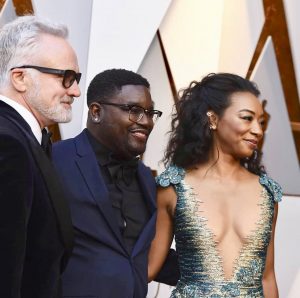
Jodie Foster, appearing on crutches and joking that the reason was a run-in with Meryl Streep, presented best actress with Jennifer Lawrence, in lieu of last year’s best-actor winner, Casey Affleck. Mr. Affleck bypassed the ceremony amid continued criticism for settling sexual harassment suits in the past. The best picture award was presented by Warren Beatty and Faye Dunaway, who because of a mix-up backstage by PwC, mistakenly announced last year’s best picture winner as “La La Land” instead of “Moonlight.” “I want to dedicate to every young filmmaker — the youth who are showing us how things are done,” said Mr. del Toro when he accepted the award for best picture. “The Shape of Water” also won for Alexandre Desplat’s score and Paul Denham Austerberry’s production design.
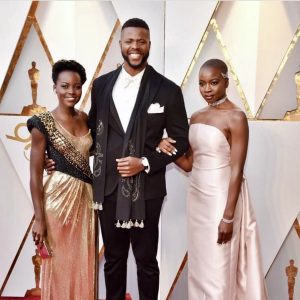
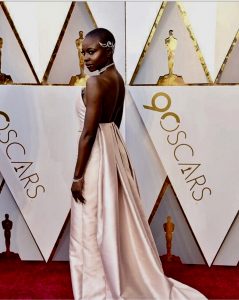
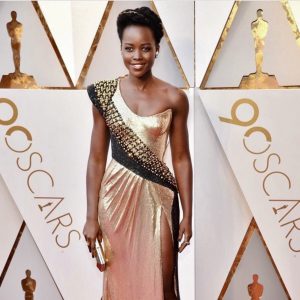
Mr. Ivory, 89, a four-time nominee, won for the best adapted screenplay for the gay romance “Call Me by Your Name.” All people, “whether straight or gay or somewhere in between,” can understand the emotions of a first love, Mr. Ivory said, reading from notes. (Mr. Ivory was previously nominated for directing “A Room With a View,” “Howards End” and “The Remains of the Day.”) Activism and social politics were highlighted in a segment introduced by Ashley Judd, Salma Hayek and Annabella Sciorra, all of whom had gone public with allegations about enduring sexual harassment or worse at the hands of Harvey Weinstein. The women recognized the seismic shift in Hollywood’s culture in recent months with the rise of #MeToo, and Ms. Judd spoke of the voices “joining in a mighty chorus that is finally saying Time’s Up.”
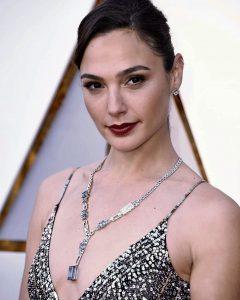
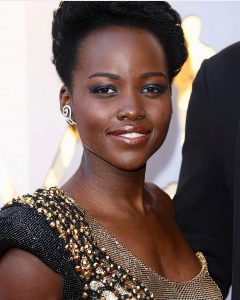

They were followed by an emotional video featuring Mira Sorvino, Sarah Silverman, Greta Gerwig, Geena Davis and Kumail Nanjiani, who injected a note of levity by noting that the box-office lucre enjoyed by recent diverse movies should be an incentive for Hollywood. “Don’t do it for society and representation,” he said, “Do it because you get rich, right?” During their performance of the Oscar-nominated song “Stand Up for Something,” from “Marshall,” Common and the singer Andra Day were joined on stage by 10 prominent activists, including Cecile Richards of Planned Parenthood; the labor leader and civil rights advocate Dolores Huerta; Bana Alabed, the 8-year-old Syrian refugee who documented the siege of Aleppo on Twitter; and Janet Mock, a transgender activist, and television writer and host.
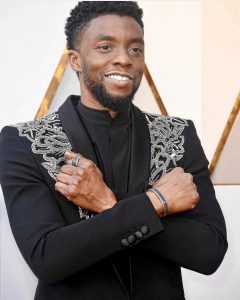
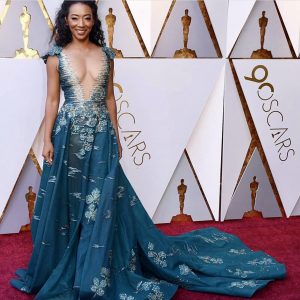
The first hour and a half of the Oscars ceremony honored a wide variety of films. “Phantom Thread,” Paul Thomas Anderson’s period romance about an obsessive dressmaker, won for costume design. Best hairstyling and makeup went to the World War II drama “Darkest Hour.” The Oscar for production design was given to “The Shape of Water.” “Dunkirk,” Christopher Nolan’s layered war epic, collected Oscars for sound mixing, sound editing and film editing. “Blade Runner 2049” proved victorious in the visual effects category. As expected, Ms. Janney completed her awards-season winning streak. “I did it all by myself,” Ms. Janney said, arriving at the microphone, to prolonged applause. She then added, “Nothing is further from the truth,” and ran through a list of names at light speed.
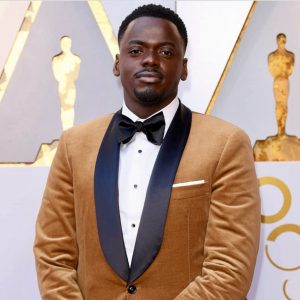
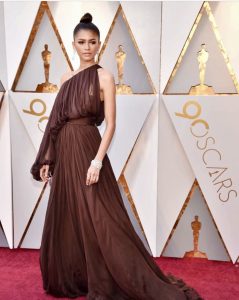
“A Fantastic Woman,” from Chile, was named best foreign film. Rita Moreno, who won a supporting actress Oscar in 1962 for “West Side Story,” presented the prize. In keeping with the telecast’s theme of looking back at celebrated performances, a clip highlighted Ms. Moreno’s performance in “West Side Story.” In a surprise, the Oscar for best documentary went to “Icarus,” a Netflix film about systematic Russian doping at the Olympics. (Russia was banned from the recent Pyeongchang Games, though some of its athletes were still allowed to compete.) It was Netflix’s first Oscar for a feature film, having won last year’s prize for best documentary short, for “White Helmets.” The expected winner had been “Faces Places,” a lighter, more nuanced film about Agnès Varda — known as the grandmother of the French new wave — and the environmental photographer JR. Netflix mounted a lavish campaign for “Icarus,” raising eyebrows in the rather staid documentary filmmaking community.
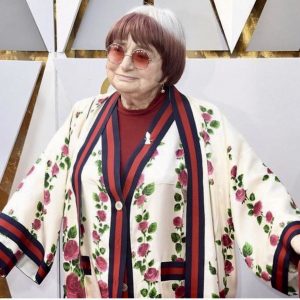
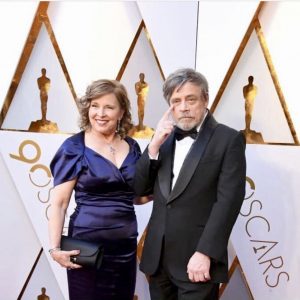
The first Oscars of Hollywood’s post-Harvey Weinstein era took care of its serious business first. As the 90th Academy Awards got underway on Sunday night, the host, Jimmy Kimmel, addressed the sexual harassment scandals that have rocked Hollywood in recent months. “That’s the kind of men we need more of in this town,” Mr. Kimmel said, pointing to a colossal Oscar statue on the stage, noting that the figure “keeps his hands where you can see them” and has “no penis at all.” He then grew serious for a moment and talked about the #MeToo and Time’s Up movements, which started in Hollywood after the revelations about Mr. Weinstein and have reverberated across the globe, challenging the entertainment industry to make good on its promise to reform itself. “The world is watching us,” he said. “We need to set an example.”
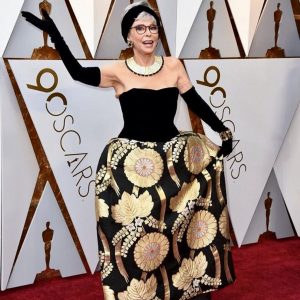
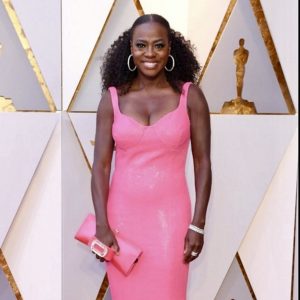
With that, the ceremony swerved into its usual piquancy, lightly teasing nominees like Ms. Streep, up for her 21st Oscar, and naming Sam Rockwell best-supporting actor for his performance as a racist dimwit of a police officer in “Three Billboards Outside Ebbing, Missouri.” He thanked “everyone who’s ever looked at a billboard.” Rarely had more pressure been placed on an Oscar telecast. The Academy of Motion Picture Arts and Sciences had the burden of trying to keep ratings from falling, while celebrating films that have, for the most part, not been widely seen. The ceremony was expected to acknowledge the appalling sexual harassment scandals that have engulfed Hollywood in recent months — and then go back to gazing lovingly at the history of moviemaking to mark Oscar’s 90th birthday.
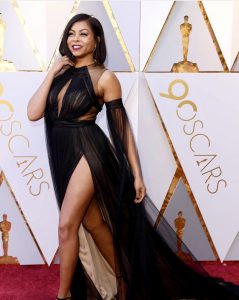
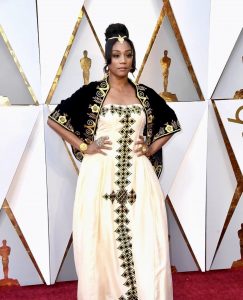
Other conflicting pressures included poking fun at last year’s envelope mix-up, which found “La La Land” mistakenly named best picture instead of “Moonlight,” while taking the recognition of cinematic achievements like sound mixing and film editing supremely seriously. The tonal tug-of-war between frothy self-celebration and serious discussion of the #MeToo and Time’s Up movements made for some awkward red carpet moments. ABC veered from a raucous interview with Taraji P. Henson, who was asked about her recent action film “Proud Mary,” to Mira Sorvino and Ms. Judd, both of whom came forward last year with allegations of sexual harassment against Mr. Weinstein. “I want people to know that this movement isn’t stopping,” Ms. Sorvino said about Time’s Up, an initiative started by Hollywood women and focused on fighting systemic sexual harassment across industries. Ms. Judd, who was scheduled to present an award during the ceremony, said she was grateful that women who speak out about mistreatment are no longer being “disbelieved, minimized, shamed.” A minute later, the red carpet hosts were back to squealing over the gowns chosen by stars like Whoopi Goldberg and Jennifer Garner.

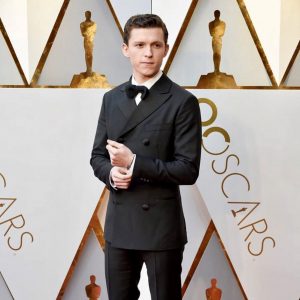
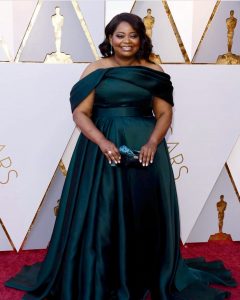
Several women deeply involved with Time’s Up, including Ava DuVernay and Shonda Rhimes, explained why there were no overt displays from the group on the red carpet. “We are not an awards show protest group,” Ms. DuVernay said at a meeting with a small group of reporters last week. “We made a conscious choice not to do that again.” Viewers wondered if a celebrity would turn the questions around on Ryan Seacrest, the host of E!’s red carpet coverage. He has been accused of sexual harassment, claims he and his network, backed by a third-party investigation, have vigorously denied. But no such confrontation was broadcast — though Ms. Henson did fix him with a pointed stare that was widely interpreted as such — and he did not address the accusations. His interviews with celebrities stuck to the typical fare of fashion and film, though according to US Weekly, none of the best actress nominees stopped to speak with him. An article in The Hollywood Reporter on Sunday said the E! broadcast would run on a 30-second tape delay.
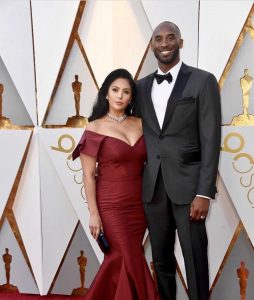
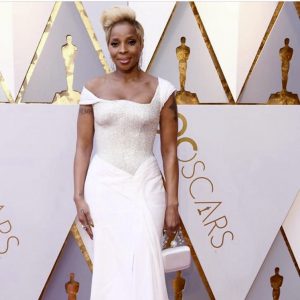
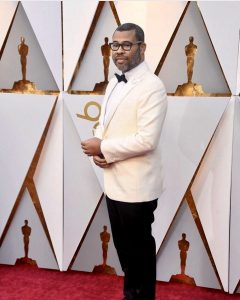

In the two months since Time’s Up officially began, the group has amassed $21 million for its legal defense fund and, said Tina Tchen, a lawyer heading that initiative, has fielded 1,700 requests for assistance from landscapers, government workers, police officers, prison guards, and hotel and catering workers. (Some 1,250 have been connected with lawyers.) A sister initiative has sprung up in Britain; a group of male allies has formed; a partnership with StoryCorps, the story-collecting organization, has been forged; and the process of making the group a nonprofit foundation has begun. “We are global at this point,” Ms. Rhimes said. Thank you to the Academy Awards 90th Oscers for having Backstage Access Magazine.
Photo credit : Chris Wallace
AKASHIC PHOTOGRAPHY
Photo credit : David Evans
Backstage Access Magazine
Melinor Moore
CEO/Senior Executive Publicist
(323) 418-AEOM (2366) Los Angeles Office
(702) 582-5870 Las Vegas Office
(702) 688-1026 Direct
(702) 548-0704 Fax
mmoore@aeompr.com
www.aeompr.com

